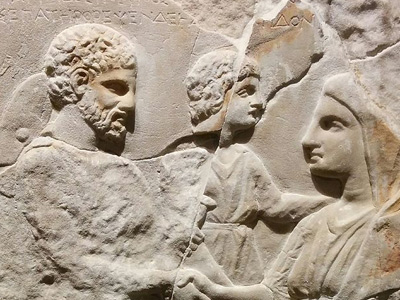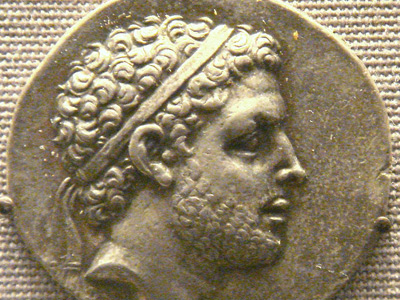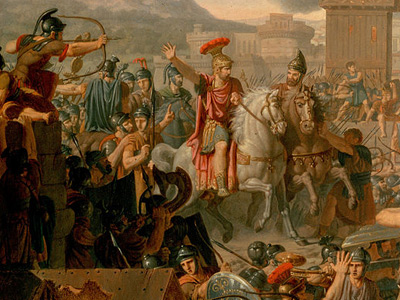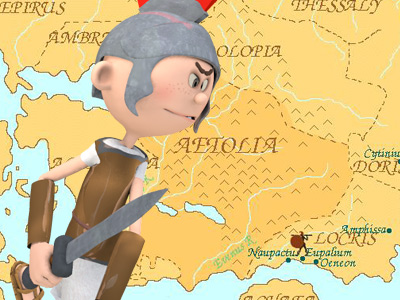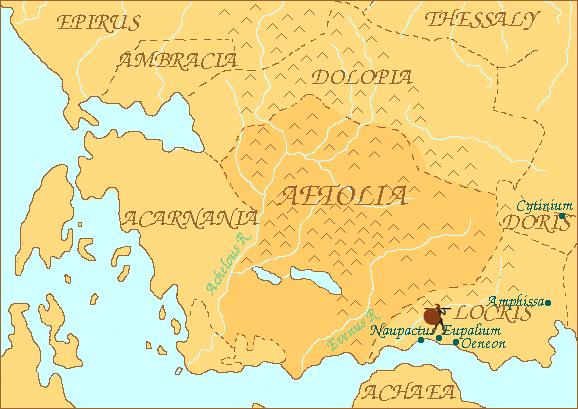First Macedonian War (214–205 BC)
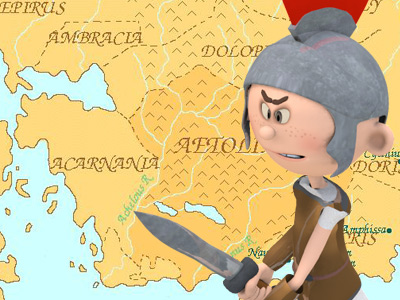
The War Ends
Although Philip considered Attalus' escape a bitter defeat, it proved to be the turning-point of the war. Attalus was forced to return to Pergamon, when he learned at Opus that, perhaps at the urging of Philip, Prusias I, king of Bithynia and related to Philip by marriage, was moving against Pergamon. Sulpicius returned to Aegina. Free from the pressure of the combined Roman and Pergamon fleets, Philip was able to resume the offensive against the Aetolians. He captured Thronium, followed by the towns Tithronium and Drymaea north of the Cephisus, controlling all of Epicnemidian Locris, and took back control of Oreus.
The neutral trading powers were still trying to arrange a peace. At Elateia, Philip had met with the same would be peacemakers from Egypt and Rhodes, who had been at the meeting in Heraclea, and again in the spring of 207 BC, but to no avail. Representatives of Egypt, Rhodes, Byzantium, Chios, Mytilene and perhaps Athens also met again with the Aetolians that spring. The war was going Philip's way, but the Aetolians, although now abandoned by both Pergamon and Rome, were not yet ready to make peace on Philip's terms. However, after another season's fighting, they finally relented. In 206 BC, the Aetolians, without Rome's consent, sued for a separate peace on conditions imposed by Philip.
The following spring the Romans sent the censor Publius Sempronius Tuditanus with 35 ships and 11,000 men to Dyrrachium in Illiria, where he incited the Parthini to revolt and laid siege to Dimale. However, when Philip arrived Sempronius broke off the siege and withdrew inside the walls of Apollonia. Sempronius tried unsuccessfully to entice the Aetolians to break their peace with Philip. With no more allies in Greece, but having achieved their objective of preventing Philip from aiding Hannibal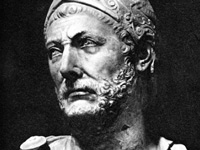 Hannibal Barca (247-183 BC), was a Carthaginian general, considered one of the greatest military commanders in history. Hannibal lived during a period of great tension in the western Mediterranean Basin, when the Roman Republic established its supremacy over other great powers such as ancient Carthage. One of his most famous achievements was at the outbreak of the Second Punic War, when he marched an army which included war elephants from Iberia over the Pyrenees and the Alps into Italy. Hannibal Barca », the Romans
Hannibal Barca (247-183 BC), was a Carthaginian general, considered one of the greatest military commanders in history. Hannibal lived during a period of great tension in the western Mediterranean Basin, when the Roman Republic established its supremacy over other great powers such as ancient Carthage. One of his most famous achievements was at the outbreak of the Second Punic War, when he marched an army which included war elephants from Iberia over the Pyrenees and the Alps into Italy. Hannibal Barca », the Romans The Roman Republic was a form of government of Rome and the era of the classical Roman civilization when it was run through public representation of the Roman people. Beginning with the overthrow of the Roman Kingdom (traditionally dated to 509 BC) and ending in 27 BC with the establishment of the Roman Empire, Rome's control rapidly expanded during this period - from the city's immediate surroundings to hegemony over the entire Mediterranean world. were ready to make peace. A treaty was drawn up at Phoenice in 205 BC, the so-called "Peace of Phoenice" formally ended the First Macedonian War.
The Roman Republic was a form of government of Rome and the era of the classical Roman civilization when it was run through public representation of the Roman people. Beginning with the overthrow of the Roman Kingdom (traditionally dated to 509 BC) and ending in 27 BC with the establishment of the Roman Empire, Rome's control rapidly expanded during this period - from the city's immediate surroundings to hegemony over the entire Mediterranean world. were ready to make peace. A treaty was drawn up at Phoenice in 205 BC, the so-called "Peace of Phoenice" formally ended the First Macedonian War.
HISTORY
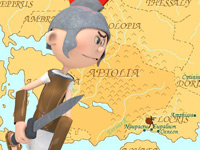
RESOURCES
This article uses material from the Wikipedia article "First Macedonian War (214–205 BC)", which is released under the Creative Commons Attribution-Share-Alike License 3.0.
© Stories Preschool. All Rights Reserved.
